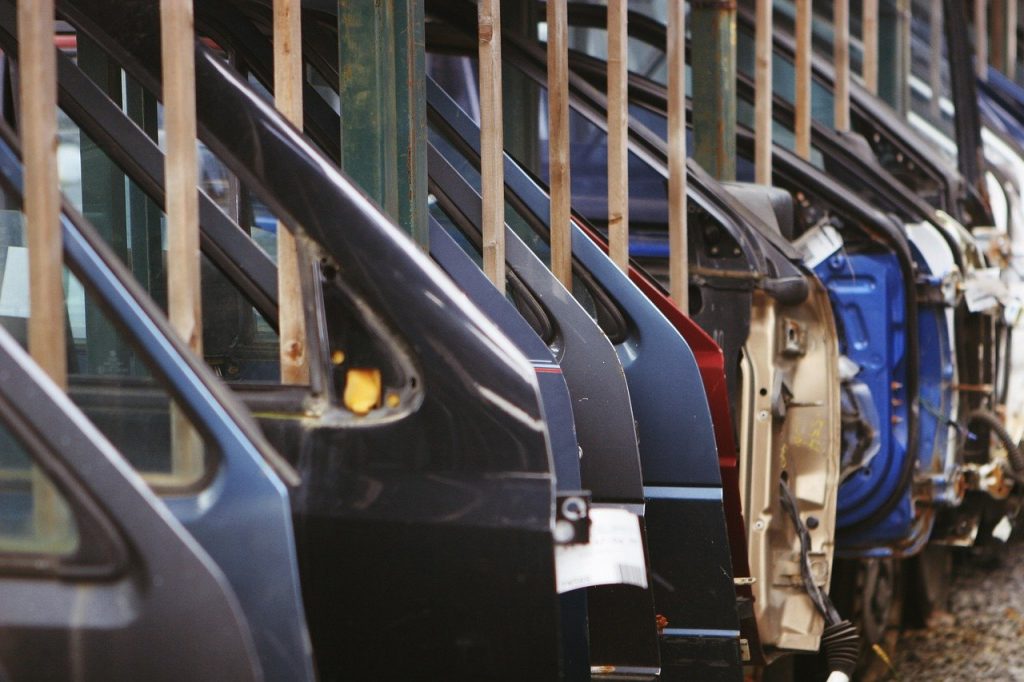Covid-19 has hit the car industry hard. In this two-part post, we look at the extent of the damage and the prospects for recovery.

The first post-lockdown figures are in from the car industry. To put it mildly, they are grim:
- UK car sales fell by 97% in April
- Across Europe, the fall is around 80%
- US car sales are expected to have dropped by 53%
These follow earlier falls in March, when UK new registrations had fallen by 44%.
The coronavirus impact has hit smaller car manufacturers particularly hard. Aston Martin Lagonda, for example, suffered a 45% drop in sales over the first quarter of the year. Although their UK sales had only dropped by 3% in that period, lockdown in Asian countries saw sales in that region plummet by 74%. The company’s losses have grown from £17.3 million in last year’s Q1 to almost £119 million this year.
But large or small, all car manufacturers are feeling the squeeze. And surely, the questions keeping CEOs awake at night are, “How quickly can we bounce back from this? Will it be months, years… or not at all?”
But before we look into that, let’s consider the ways that Covid-19 affects the industry.
Covid-19: More Than Just Sales
It’s pretty obvious why Covid-19 has led to a drop in sales: severe lockdowns have meant people aren’t allowed to leave their homes. There just havent been many opportunities to buy a new car. Even when travel restrictions ease, the problem doesn’t go away. With most new cars sold through dealerships, sales still suffer until those can re-open. And on top of all that, economic and job uncertainties will see many people deferring their purchase.
The knock-on effect from falling sales is less liquidity for the car manufacturers. Like all of us, companies have their bills to pay, including paying their workforce. It’s not very long before even the biggest corporations start burning through their cash reserves — in fact, for the average car manufacturer, it’s just 1.6 months. After that, they have no choice but to go cap-in-hand to the banks or the relevant government.
Even if the demand returns, manufacturers may face two major issues.
- Manufacture. Like most places, car factories simply aren’t set up for social distancing. One of their biggest challenges is figuring out a way in which employees can safely return to work. This issue has been at the centre of a tussle between Tesla CEO Elon Musk and California authorities, with the former insisting that their massive Fremont factory was safe to re-open.
- Getting hold of parts. Manufacturers don’t hold huge reserves of parts, so any break in the supply chain completely scuppers their production. And with thousands of components in a modern car, that supply chain is incredibly vulnerable to disruption. As Kristin Dziczek, Vice-President of the Center for Automotive Research, puts it: “We need all the parts to make a car, we can’t do it with 99.9%.” Factory closures in China have particularly impacted manufacturers, as the country is the largest global supplier of car components. The parts then have to get to the manufacturers — not always straightforward when reduced demand has seen many shipping lines delay or cancel their cargo ships. On top of all that, border and trade restrictions can add further to supply chain issues.
Will the car industry bounce back?
It’s plain to see that all of these problems won’t go away overnight. Just considering sales, several major economies are already in recession, or heading that way. That’s never good for demand.
According to Professor Ferdinand Dudenhoeffer, Director of Germany’s Center for Automotive Research:
“The Western European automobile market will need about 10 years to reach the size of 2019 again.”
Other industry experts think sales may never recover to that level. Many have suggested that even before Covid-19, we had already reached ‘Peak Car.’ Mike Rutherford of Auto Express points out that global sales dropped from over 70 million in 2017 to 64 million in 2019. He goes on to say:
Last year alone, the world’s car makers built almost three million more cars than they could register or sell. And this excess of product was in addition to the oversupply of millions of vehicles in earlier years.
However, predicting future demand is complicated by two conflicting forces:
- Millions are shunning public transport, so sales might be expected to rise.
- Many major cities have introduced miles of car-free zones, which if successful may become permanent. This may lower demand.
With all that in mind, it’s hard to say exactly what a ‘bounce back’ is going to mean. To face the challenges of Covid-19, increased regulation and changing consumer needs, the industry may have to change…and that’s what’s coming up in Part Two.
The WVS blog covers a wide range of automotive topics, from the contentious to the light-hearted. We are an independent garage specialising in all the VW group marques, including Audi, Volkswagen, Skoda and SEAT. WVS provides services, repairs and MOTs, delivering a main dealer level of care at affordable prices. To book your vehicle in, or for any enquiries, get in touch.

